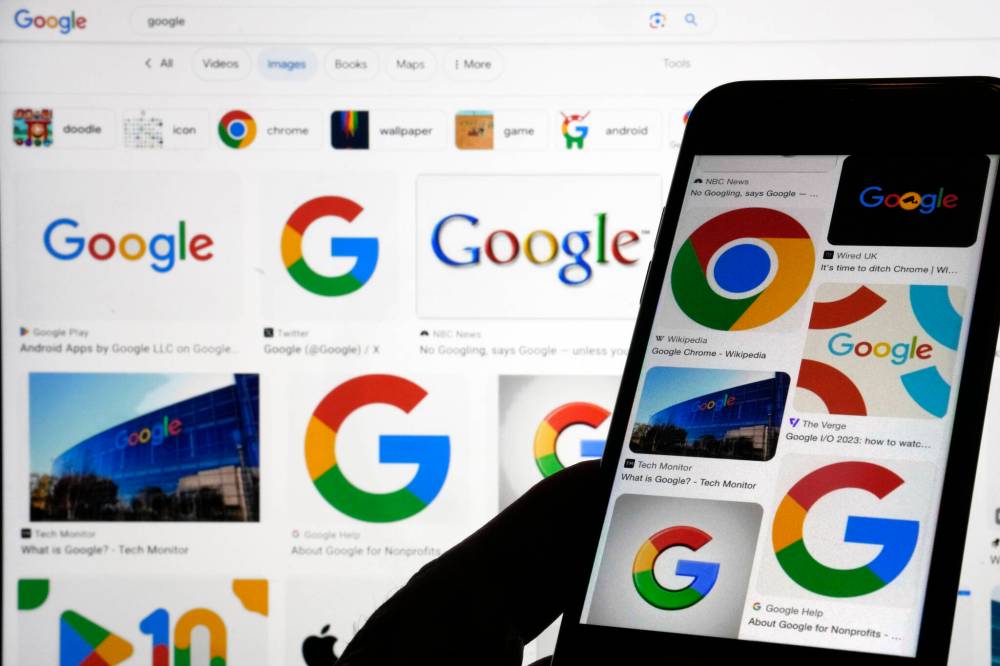A legal defeat for a tech giant
Advertisement
Read this article for free:
or
Already have an account? Log in here »
To continue reading, please subscribe:
Monthly Digital Subscription
$0 for the first 4 weeks*
- Enjoy unlimited reading on winnipegfreepress.com
- Read the E-Edition, our digital replica newspaper
- Access News Break, our award-winning app
- Play interactive puzzles
*No charge for 4 weeks then price increases to the regular rate of $19.00 plus GST every four weeks. Offer available to new and qualified returning subscribers only. Cancel any time.
Monthly Digital Subscription
$4.75/week*
- Enjoy unlimited reading on winnipegfreepress.com
- Read the E-Edition, our digital replica newspaper
- Access News Break, our award-winning app
- Play interactive puzzles
*Billed as $19 plus GST every four weeks. Cancel any time.
To continue reading, please subscribe:
Add Free Press access to your Brandon Sun subscription for only an additional
$1 for the first 4 weeks*
*Your next subscription payment will increase by $1.00 and you will be charged $16.99 plus GST for four weeks. After four weeks, your payment will increase to $23.99 plus GST every four weeks.
Read unlimited articles for free today:
or
Already have an account? Log in here »
Hey there, time traveller!
This article was published 07/08/2024 (478 days ago), so information in it may no longer be current.
It was big news on Google, in more ways than one.
If you typed the word “Google antitrust” into the predominant internet search engine yesterday, you would have come up with story after story about Google having been found to have violated U.S. antitrust legislation.
Now, it’s interesting to point out that none of those news stories was actually produced by Google itself, but Google did make advertising dollars off of all of the content it merely indexed. (Almost hilariously, the main Associated Press story on the case was topped by an advertisement for Google services.)

File
Google has hit rough legal waters.
So strangely, even bad news about Google is good news for its bottom line. And this editorial — if anyone finds it online using the search engine – will do the same. Sigh.
But back to the main point: antitrust legislation in the U.S. is designed to address what the U.S. Justice Department describes as “unfair business practices that could harm consumers.”
In this long-running case, which was launched in the U.S., a judge found that Google doesn’t just have a lock on the internet search business, but that it abused its monopoly position to keep other players out of the market. Its massive share of the search business — more than 89 per cent of all internet searches are done on Google — meant that it was able to artificially inflate the prices it charges advertisers, while also not having to improve the service it offers customers.
For both advertisers and customers, it meant they were offered a “take it or leave it” deal, with no other real options if the choice was made to leave the Google universe.
A key part of the judge’s findings centred around the huge amounts of money Google was paying to ensure that smartphones and other devices came equipped from start-up with Google’s search engine as a preset default setting. In all, Google paid more than US$23 billion in 2021 (US$20 billion to Apple alone in 2022) to make sure that new tech buyers saw, and used, Google first.
In its defence, Google argued that it was simply the best search engine — and that, if there was a better choice, customers would choose the better search engine. That may be true — if the customer actually got to see the new search engine. And perhaps that’s why the judge in the case focused particularly on the payments to tech producers to make sure that Google was the first and most obvious choice.
The logic is pretty clear: if you’re paying retailers to exclusively carry your particular mousetrap, it’s pretty hard for a new mousetrap-maker to get their product to customers, even if it does a better job of catching mice.
The bright spot? Perhaps the fact that, as U.S. Attorney General Merrick Garland put it in a statement, “No company – no matter how large or influential – is above the law.”
The less-bright-spot? How regularly it seems that as companies get bigger and bigger, they seem to need to find ways to gain competitive advantage by methods that go far beyond constantly improving the efficacy of their products.
What’s next?
Well, appeals, legal foot-dragging, and perhaps, some five years or so into the future, legal remedies that Google either divest of some of its assets, pay fines, or stop making payments to be a default search engine — or maybe a combination of all of those and any other possible penalties that the judge may apply.
And when and how will we find out about those penalties?
If you’re searching online instead of reading the paper first, you’ll probably still find out about it … through a search on Google.





